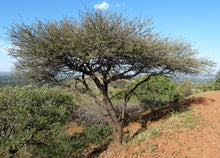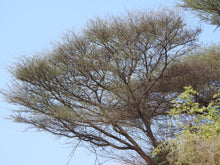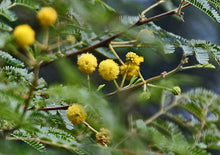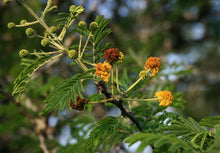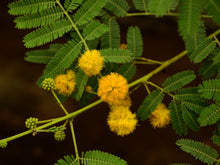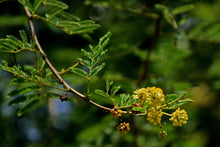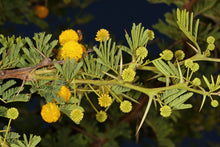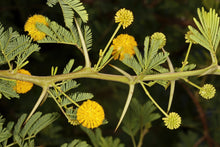
Babul (Acacia arabica aka Vachellia nilotica) is a small thorny tree with yellow flowers, native to Africa, the Middle East and India and having a wide variety of medicinal uses from almost all parts of the tree (including its leaves, bark, twigs and seed-pods). It is also an important source of gum arabic, harvested from the hardened sap of the tree and widely used in food products, cosmetics, painting, photograph & print-making, stamp & envelope adhesives and even in the production of incense!
Medicinal Uses
According to Ayurveda, Babul is a powerful astringent and anthelmintic herb which is traditionally used to control bleeding and treat wounds and ulcers (especially of the gums, stomach and intestines) and to counteract intestinal parasites and relieve diarrhea. It is considered a kaphahara herb, balancing to any excess of the kapha dosha. The gum of the tree is also important in the production of traditional ayurvedic pills and lozenges, especially those used to ease sore throat, coughing and congestion.
Similar to Neem & Peelu, it is also considered one of the toothbrush trees from which traditional teeth-chewing sticks, called miswak or datun, are made. It is thus one of the principal herbs in Ayurvedic dental care, commonly included in Ayurvedic toothpaste and traditional tooth powder formulas to cleanse the teeth and fortify the gums.
Apart from its traditional uses, modern medical research has also focused on Babul’s antimalarial potential.
Medicinal Uses
According to Ayurveda, Babul is a powerful astringent and anthelmintic herb which is traditionally used to control bleeding and treat wounds and ulcers (especially of the gums, stomach and intestines) and to counteract intestinal parasites and relieve diarrhea. It is considered a kaphahara herb, balancing to any excess of the kapha dosha. The gum of the tree is also important in the production of traditional ayurvedic pills and lozenges, especially those used to ease sore throat, coughing and congestion.
Similar to Neem & Peelu, it is also considered one of the toothbrush trees from which traditional teeth-chewing sticks, called miswak or datun, are made. It is thus one of the principal herbs in Ayurvedic dental care, commonly included in Ayurvedic toothpaste and traditional tooth powder formulas to cleanse the teeth and fortify the gums.
Apart from its traditional uses, modern medical research has also focused on Babul’s antimalarial potential.







